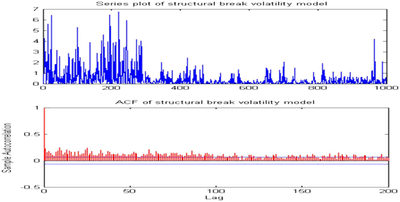B2 - Forecasting high-dimensional time series
Forecasting high dimensional time series requires some structural assumptions that allow the reduction of the complexity of the model. Typical examples of such dynamic assumptions are factor models but also more general dynamic factor models and functional principal components. Examples where this forecasting exercise is economically relevant may be found in Chang et al. (2011), where time series of earning distributions and time series of physical measures of S&P 500 returns are considered in a unit root framework. The risk of the existing modeling approaches though, is that they are insensitive to time varying structure. Bringing together dimension reduction paradigms with local adaptation techniques is the current challenge for forecasting of high dimensional time series. The IRTG group has collected already some expertise in both areas (dimension reduction and adaptive techniques). First results applied to risk management are promising, see Chen, Härdle, Spokoiny (2009). A satisfactory approach for forecasting high dimensional time series is the application of adaptive techniques to properly dimension reduced time series.
Coordination
- Vladimir Spokoiny: His main interests are non and semiparametric statistics, local adaptive method. His research includes work in high dimensional data analysis, statistical method in finance, nonlinear time series.
- Ying Fang: His main interests are Econometrics, Applied Econometrics, Economy of China. His research includes work in nonparametric and semi-parametric method, panel data analysis, and instrumental variable selection.
- Muyi Li: Her research interests are Time series analysis, high dimensional financial econometrics, model specification tests and diagnostic checkings.
- Yingxing Li: Her main research interests are Nonparametric and Semiparametric Regression, Dimension Reduction and functional data analysis.
- Yu Ren: His main interests are Financial Econometrics, Applied Econometrics, Econometric Theory. His research includes work on testing of stochastic discount factor and China finance.

